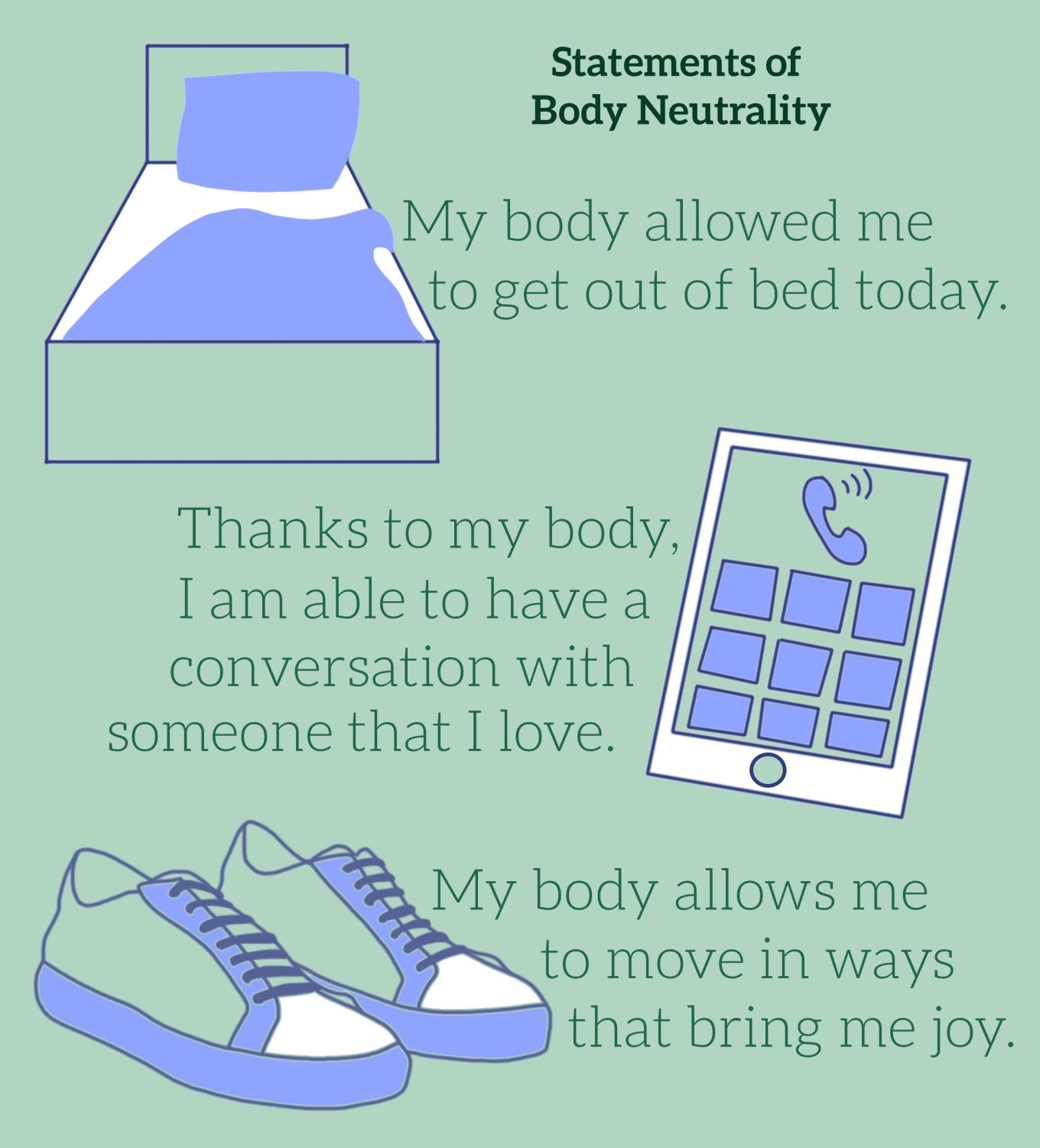Eating Disorders
This page is intended to be an introduction and overview into self-care practices for healing your relationship with food.
What is an Eating Disorder?
Eating disorders are often a response to your mind trying to overcompensate for a lack of control, by attempting to control and manipulate the physical appearance of your body. This feeling of being out of control can be triggered by many things. People who suffer from an eating disorder often feel afraid to eat certain foods because of how they might impact their body or their weight, and they might also feel safe eating other foods. There are many different kinds of specific eating disorders that are defined by different fears and the actions the ways that individuals try to protect themselves from these fears.
"Eating disorders are behavioral conditions characterized by severe and persistent disturbance in eating behaviors and associated distressing thoughts and emotions. They can be very serious conditions affecting physical, psychological and social function. Types of eating disorders include anorexia nervosa, bulimia nervosa, binge eating disorder, avoidant restrictive food intake disorder, other specified feeding and eating disorder, pica and rumination disorder." - American Psychiatric Association
Symptoms
- In general, behaviors and attitudes that indicate that weight loss, dieting, and control of food are becoming primary concerns
- Preoccupation with weight, food, calories, carbohydrates, fat grams, and dieting
- Refusal to eat certain foods, progressing to restrictions against whole categories of food (e.g., no carbohydrates, etc.)
- Appears uncomfortable eating around others
- Food rituals (e.g. eats only a particular food or food group [e.g. condiments], excessive chewing, doesn’t allow foods to touch)
- Skipping meals or taking small portions of food at regular meals
- Any new practices with food or fad diets, including cutting out entire food groups (no sugar, no carbs, no dairy, vegetarianism/veganism)
- Withdrawal from usual friends and activities
- Frequent dieting
- Extreme concern with body size and shape
- Frequent checking in the mirror for perceived flaws in appearance
- Extreme mood swings
More information at National Eating Disorder Association- Warning Signs and Symptoms
Body neutrality
Many of us have heard of body positivity and the accompanying movement by the same name. Body positivity is a wonderful thing and should resonate with all of us at some point in our lives. However, for individuals suffering from severe eating disorders, the expectation that they unequivocally love their bodies can be a difficult and unrealistic goal. For this reason, there is body neutrality.
"As the term suggests, it is neither loving nor hating your body. It’s based on the notions of acceptance and having respect for one’s body rather than love.” - Psychologist Susan Albers, more info here.

Low cost eating disorder support
Books
-
Beating Eating Disorders Step by Step by
ISBN: 9781846427596Publication Date: 2008-01-18Ebook - Click title to read online. -
Creative Arts Therapies and Clients with Eating Disorders by
ISBN: 9781849059114Publication Date: 2015-11-21 -
-
Eating Disorder Recovery Handbook by
ISBN: 9781784503987Publication Date: 2016-10-21Ebook - Click title to read online. -
Feeding the Starving Mind by
ISBN: 9781608826780Publication Date: 2009-02-01Ebook - Click title to read online.
Removing the stigma surrounding eating disorders
Eating disorders are common, especially amongst college students who suffer from high levels of stress and anxiety. There is no shame about looking in to getting help for an eating disorder.
Eating disorders in men
Influencers and eating disorders
Supporting a friend with an eating disorder
You might know a friend who you think has an eating disorder. It can be difficult to support someone struggling with disordered eating because this condition is characterized by its resistance to help.
Resources for supporting a friend with an eating disorder can be found here.
Intuitive eating

Intuitive eating might be one way to heal your relationship with food and encourage a strong mind body connection. If you find yourself emotionally eating, or exercising to punish your body, intuitive eating can be a helpful way to change your relationship with your body and food.
These questions might be helpful to ask yourself when eating:
- Do I tend to stop eating when I am full?
- Eat when I am hungry, rather than emotional?
- Not “pick” at my food?
- Taste each bite before reaching for the next?
- Think about how nourishing food is for my body?
- Be non-judgmental of myself when I accidentally overeat?
- Not mulit-task when I eat: when I eat, just eat?
- Be able to leave some food on my plate if I don’t want it?
- Eat slowly, chewing each bite?
- Recognize when I slip into mindfulness eating (zoned out, popping food into my mouth?)
As well as:
- Show a moment of gratitude for the food I am about to eat, whether it be a thought, one breath, or a statement expressed out loud?
- Do I attempt to provide a variety (colors, textures, food groups) of food for myself without making any foods “bad”?
- Can I allow myself to sit down and eat?
- Would I consider forgiving myself if I eat something emotionally because I am tired, frustrated, or lonely?
- How about if I lower the bar and dedicate 1 bite to mindfulness (notice the smell, texture, taste, savor it)?
More info found here.
